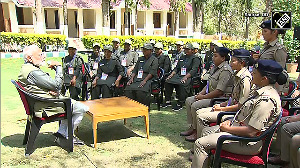 When 56-year-old Kumar, a private sector employee, was levied a charge of Rs 168 for no apparent reason by his public sector bank, he was surprised.
When 56-year-old Kumar, a private sector employee, was levied a charge of Rs 168 for no apparent reason by his public sector bank, he was surprised.
The ever-cautious, risk-averse, typical Indian middle class Kumar was unable to fathom why! An enquiry with the bank manager revealed the black hole: service charges for having overshot the limit for debit entries!
Despite rough guidelines via the Fair Practices Code issued by the Reserve Bank of India (RBI), the apex bank has left it to the discretion of individual banks to levy their own rates for the services they provide.
However, the components comprising services continue to elude customers. In the process, a lot of customers, like Kumar, are caught unawares.
Each bank is free to fix its charges for debit entries. While in the generic sense a debit entry is anything that reflects in the debit column of your account, each bank decides the charges applicable based on the type of debit entry.
For example, an NEFT/RTGS is charged by almost every bank. However, only some treat ATM withdrawals as a debit entry.
While the Fair Practices Code of the RBI mandates banks to disclose details regarding various service charges in its Annex-I, charges for debit entries does not find a mention there. K.Unnikrishnan, deputy chief executive, Indian Banks Association, says while this concept of charging customers for debit entries has existed since at least the 60s, it is only now that the public sector banks
(PSBs) are taking a re-look. "It was ignored in the post-liberalisation era due to increasing competition. Now it is a part of the market mechanism."
Ramesh Bhojwani, a certified financial planner, averred that public sector banks are under tremendous pressure to earn through fee-based income. "Thus, they are finding various means to augment their income." Private sector banks, on the other hand, charge for cash deposits as they want to discourage these. "Sometimes, this money is unaccounted for and risky," said K V S Manian, group head-retail liabilities and branch banking, Kotak Mahindra Bank.
An employee of a south-based public sector bank informed, "While the rule to levy service charges on excessive debit entries has existed for four years in our organisation, we have implemented this only now, as we had only recently switched over to core banking solutions." The bank now encourages its customers to withdraw more money per transaction. An ICICI bank employee defended, "Nobody makes those many deposits and withdrawals physically at the bank anymore."
The table below provides information pertaining to debit entries for some banks.
|
Bank |
Debit Entries Charged |
Free Debit Entries |
Charges Over Limit |
|
SBI |
All debits excluding ATM and |
30 every 6 month |
Rs 5 each entry |
|
Indian Bank |
All debits from account |
50 every year |
Rs 6 each entry |
|
Corporation Bank |
All kinds of withdrawals |
50 every 6 month |
Rs 2.50 each withdrawal |
|
ICICI Bank |
Charges apply on NEFT to |
12 every quarter |
Rs 60 each transaction |
|
Punjab National Bank |
All debits (separate charges |
50 every quarter |
Rs 1 each transaction |
HDFC Bank and Canara Bank don't have any limit and charges for debit entries.
So, how can a customer reduce costs? Here are some tips for those somewhat excessive users:
Increase the volume per debit entry: Next time, instead of withdrawing Rs 300 twice a week, withdraw a lumpsum of Rs 1,000 instead! This way, you ensure around a 50 percent reduction in your debit entries. In fact, if you have more than one personal loan, consolidate it with one bank. This will lead to one transanction.
Operate more bank accounts: There is no rule that restricts you to hold just one savings bank account. If you are the type to rely excessively on debit transactions, open a couple of other accounts. And use these periodically (you get charged for inoperative accounts,, too!) While this provides you the flexibility of additional debit entries, you can also tie specific accounts with certain auto debit facilities and other accounts for ATM withdrawals. For example, you can use Bank A for utility payments alone, Bank B for ATM withdrawals & so on.
Switch to cash payments: If you thought you were indeed saving money (money being a function of time) through one click of a button, think again! Pay your utility bills through cash. SBI is one bank that does not classify internet transactions as a debit entry. You could also save by not swiping (debit cards) at restaurants or movie halls. Postpone repaying your friends till the next time you withdraw a lumpsum from your account.
Credit card payments: Here's where the oft-maligned credit card comes into use! (Are private banks listening?!) Credit card payments typically happen once a month, at the end of your billing cycle and account for a single debit entry. You can thereby save on multiple debit entries.
Plan your payments: Earmark an amount towards unplanned and miscellaneous expenses and withdraw this lumpsum as cash. Carry forward anything remaining to the next month.






 © 2025
© 2025